Happy Pride y’all — Jarred Johnson
by Jarred Johnson
Knocked back, bones rattled, fear webbed out in my gut. Muscle memory took me back ten years.
The word spit at me in the locker room before soccer practice, yelled at me by boys in my neighborhood, breathed down my neck by the player I guarded in middle school basketball. It was a poison, a parasite, an image of myself I ran from for twenty years and parts of which I am secretly still running from.
I grew up gay in the Christian south, in Appalachia, in a culture where masculinity was strong, rugged, calloused and emotionless. Exclusively. This view carried over into the church. Every Wednesday while I led worship in youth group, men from the congregation met for a class called “Man Up” about being the godly authorities they were commanded to be.

This map shows Appalachia. The pink heart is home.
“Our culture is attacking what it means to be a man,” the pastor said from the pulpit. “We have to take that back.”
The ad printed and hung on an easel in the foyer each week showed a black-and-white photo of a man’s flexed back. Entering church each Sunday, I was reminded of my sinfulness: my stomach bottomed out when I saw that picture. I liked those muscles. I was an abomination.
In church and school I was taught to “Love the sinner; hate the sin.” My whole life I went to a private, nondenominational Christian school. Five days a week we had Bible class. I remember a lesson in 8th grade in which my teacher compared queer people to pedophiles. “If homosexuals can say they were born that way, so can a child sex offender,” he said.
Church and school were my only social circles. Since I went to a Christian school, this meant I was taught about god six days a week. Even in poor eastern Kentucky, privileged parents would pay a hefty price to send their kids to Christian school. These parents, including my own, wanted their kids taught Christian values and protected from a threatening secular worldview invasive in our culture through academia, politics and media.
In my rural, Christian bubble, homophobia was rampant. I was called a fag for liking volleyball, for the clothes I wore, for the way I spoke and walked, for liking music and theater and for writing. I cannot decipher to what extent my interests were innate and to what extent they were products of homophobia itself — my attempts to find environments where masculine predators were absent.
I first downloaded gay apps when I was sixteen. My first crushes were on boys I met on Tumblr from other states and countries. With no prospect of actually meeting them, I fully dove into the fantasies of being with them, exchanging regular photos and messages.
My first date with a guy was at the local mall in 10th grade when I dragged one of my best girl friends and the only liberal in my high school along with me to meet a boy from a different school who had messaged me on Facebook. The rumors about my sexuality obviously reached further than just my social circle.
He was too feminine. Convinced being with someone like him would out me, I never saw him again. Years later and much more comfortable with myself, returning to Somerset to visit family, I found him on Grindr. “I’m much more masc now,” he bragged.
Despite all of this, I denied my sexuality until I was twenty. I pursued girls and had girlfriends. I understood my feelings for men to be deviant and shameful — something I should deny and squelch.
The spring semester of my sophomore year of college I studied in Berlin. Distanced for the first time from home and culture, I allowed myself to try on gayness for the first time. I went on dates. I told my new friends I was gay. I knew then I would never try dating women again. Interestingly, at the same time I was embracing my sexuality for the first time, I started loving where I was from, even though I grew up convinced I was different than everyone else there.
Shortly after my return from Germany I came out to my parents. In dramatic fashion, the three of us seated around our kitchen table, I told them I was gay. Their response was simple and has not changed: “You’re not,” my mom said curtly. “You’re confused.”

City Hall in Saarbruecken, Germany, where I lived in 2017 when the country legalized gay marriage.
That night as I sat in the bathroom mulling over the traumatic events of the night I listened to my mother and father talk downstairs. “Should we cut him off? Stop paying his car insurance and his cell phone bill?” my mother asked.
“No, Annie. We can’t do that,” my dad answered.
That moment pulses like an electric wire in my head, coming back to me occasionally uninvited and unannounced. How different things could have been had that question lingered in the air longer, had my father answered differently.
I love my family and my hometown, but because I am gay I am exiled from them. I would not be welcomed by many in the community or in many workplaces. Since there is no law protecting LGBT people from workplace discrimination, I could even be fired for it. Since I am single, finding a partner would be incredibly difficult. The mental and emotional stress of being surrounded by people who deny my existence and scoff when I am being my most true self would make me miserable.
In some ways I am lucky. I still have a relationship with all of my family. My mother and I talk every morning. My father writes me letters inside Christmas cards mailed to his mattress store months ago, and we chat on the phone. But beneath the surface are underlying tensions that sometimes rip to the surface and push us apart for a time.
Recently, on a day I was home sick from work, my mom called to tell me about a dream she had the night before. In it she saw an older gay man kiss me, opening his mouth so wide that my entire head fit in it, replacing the head of her son with his unrecognizable, distorted, sideways face.
“I was yelling ‘What happened to my son?!’” she said. “Where is my son?!”
This is how she feels about me. That I have lost my way. That I am completely different than I was before I came out.
Events like these happen often with my mother. When she visited New York and found out the volleyball league I am in is a gay league, when my sister showed her a photo of me in makeup, when visiting her and she caught me looking at a shirtless man on instagram.

My first gay volleyball team; my first vibrant gay community.
These moments are not isolated. They are strung together tightly, an undercurrent rushing beneath every laugh we share and sweet word we exchange. Beneath our love for one another is the knowledge that I am something that hurts her deeply — that she will never accept the fullness of who I am, will never acknowledge that pivotal, intimate part of me as anything other than a sinful misunderstanding that I wrongfully decided was my identity.
“Disgusting” and an “abomination” are the words my mother most often uses when describing me and this vital part of my identity. When I have tried arguing with her about why I do not believe being gay is wrong, attempting to show her scholarship refuting traditional interpretations of the Bible verses she uses to justify her fears and hatred, she refuses to even look at my sources. Fully convinced she is right and that nothing can change her mind, the conversation is left with nowhere to go. From a majority of Christians this is the same attitude I have encountered.
The same goes for most of my immediate family: my sisters, my nieces, aunts, uncles, cousins. We love each other. That is understood. But we do not talk about my being gay. They do not support this. The politicians they elect create laws and policies that make life more difficult for me.
I recognize things will get worse. The day will certainly come when I want to be home for Christmas or Thanksgiving with my boyfriend or husband, and that will not be possible. I do not know what will happen then.
One Sunday while living in Chicago I tried going to an open-and-affirming church. In an indie theater I worshipped besides queer and trans folk. The pastor invited me to coffee that week. “I am so sorry for the way the church has treated you,” she said to me while we chatted in a café. “The church has denied itself all the contributions of the LGBT community.”

Being fabulous at Chicago Pride. Clock the eyeshadow.
I thought back to my times leading worship in high school. Perhaps I could have continued this had I not felt unwelcome.
It is time the church recognizes that its stance toward homosexuality is not commanded by God. The “Christian” stance toward homosexuality is based in culture and fear, not in the Bible, which is merely used as a justification for many Christians’ culturally-imparted disdain, misunderstanding and fear of queer and trans people.
For centuries, the church’s stance on homosexuality has sank its fangs into the way we see queer people. The church is directly to blame for tearing apart the families of queer people and for the deaths of members of the LGBT community: the lives lost to suicides and addictions, homelessness, severe depression, anxiety and other mental health disorders.
Responding to a Facebook status I created in June 2018 about the bullying I endured in school, a former teacher of mine who was also a pastor messaged me. “I am so sorry,” he wrote. “If I had known that was going on, I would have done something.”
But what would you have done? It was your religion and your leadership that cultivated the hatred and fear of me that my peers expressed. It was your Bible that they used to justify their actions. It was the culture you created in the hallways of that school, in the locker rooms and bathrooms, in your classroom, even, in your textbooks and assignments, that allowed their cruelty to thrive and blossom. Your indifference toward this hatred, your denial that sexual orientations other than heterosexual even existed, your ignorance of queer people and how they lived, your prudishness toward sex in general, the blind back you turned when you heard a student say “That’s gay” as a pejorative — these actions condoned my predators and encouraged their actions.
—
This Pride season I reflect back on the long, painful journey that has led to me where I am: from Christian eastern Kentucky to Germany to Chicago and now to New York. To me, Pride contains all of that story.
Unabashedly and irrevocably, I am an Eastern Kentuckian, an Appalachian and a Southerner. I carry these identities in my blood and on my tongue: “Howdy,” I like to start emails; “Tschüss, ya’ll,” I say to my German coworkers when I leave for the day.
I often think about the subtle ways that falling asleep each night to the sound of beagles barking and cicadas singing — waking to the smell of switchgrass and little bluestem, the sun rising over the rolling foothills of the Appalachians, barely another home in sight — affected me and made me different from my friends who grew up in suburbs and cities. That will always be who I am and where I am from, and I trust that one day I will return someplace close to there.
This is not much different from my sexuality. Reflecting back on my boyhood, I recognize I am different now. Now, without shame and as unchangeable as where I am from, I embrace my queerness. I wear it in the gait of my hips, the flick of my wrist and the lilt of my voice.
This weekend, wearing a rainbow button-up, daisy dukes and a rhinestone belt, I will celebrate Pride in New York in 2019, the 50th anniversary of the Stonewall Riots where queer and trans people of color paved the way for my own more subtle liberation: the recognition that being who I am and from where I am from are not discrepancies, but interwoven identities, tangled tightly together like strands of DNA or the tributaries of the Cumberland River.
Like the cicadas of my boyhood or a church choir, my voice rises, joining the thousands of queer folk surrounding me, becoming a chorus. “Happy Pride, Ya’ll,” I sing.
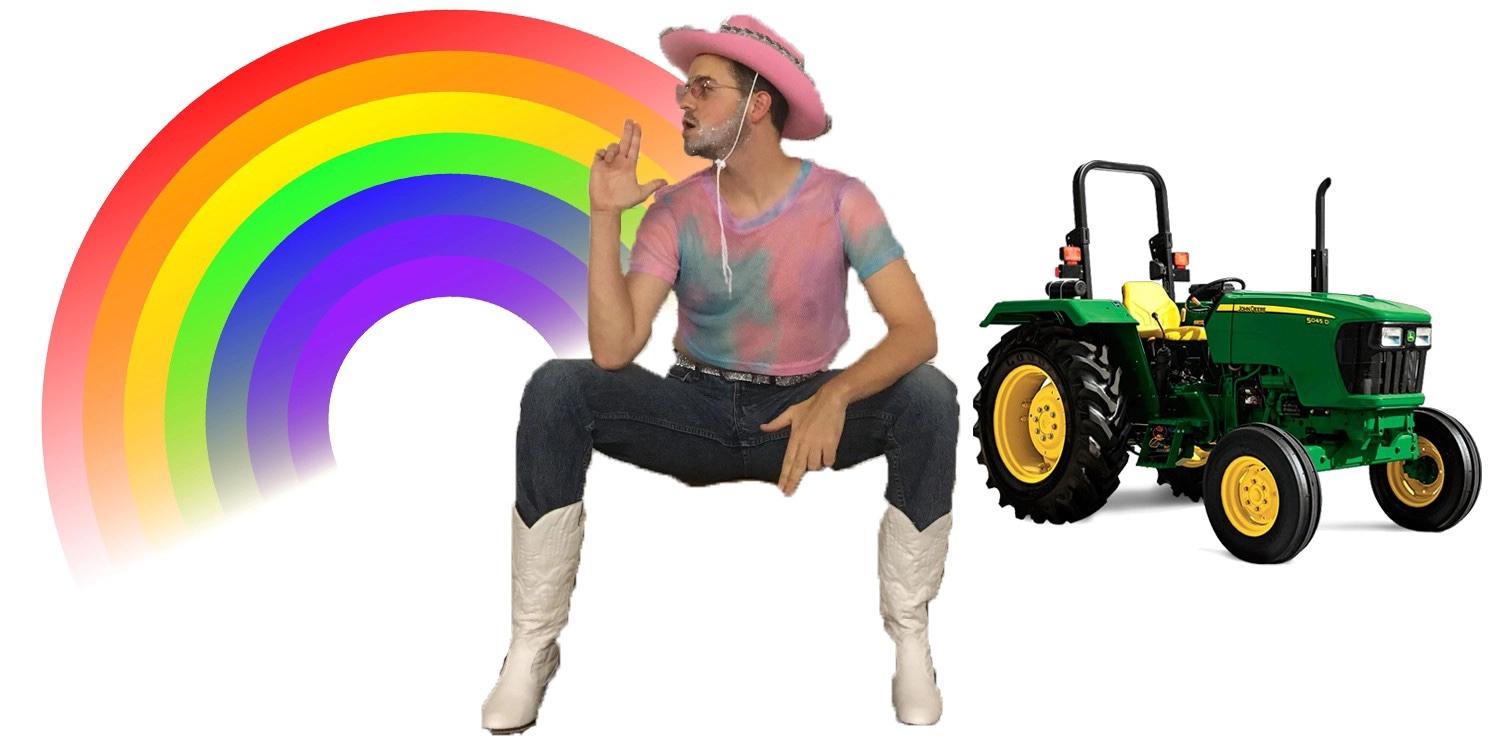


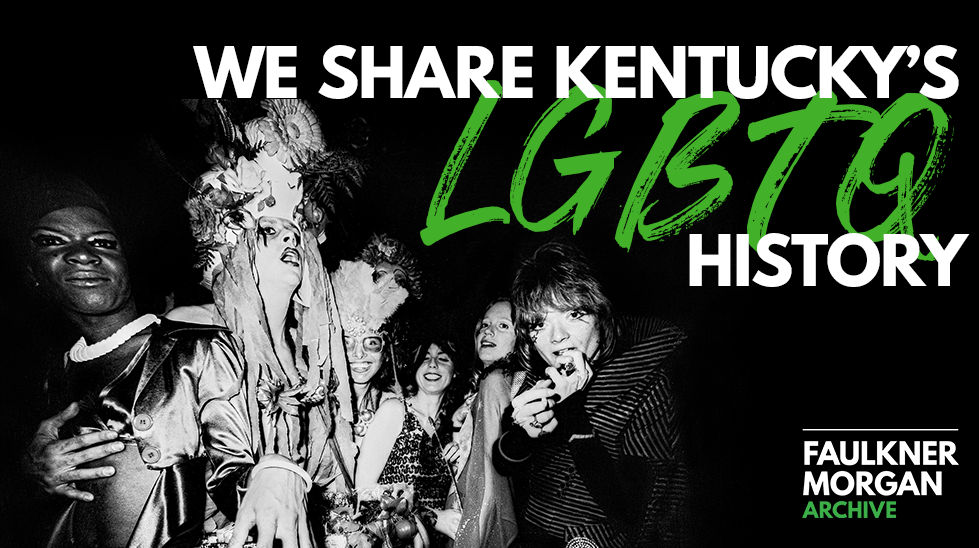


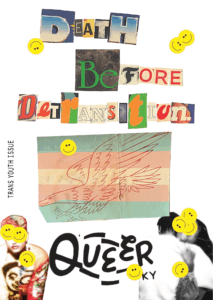
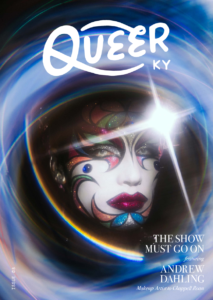




Leave a Reply
Want to join the discussion?Feel free to contribute!